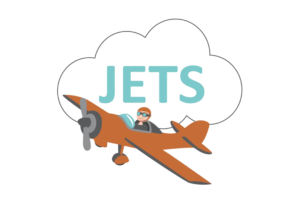JASPER Early Intervention for Tuberous Sclerosis Complex Study (JETS)
Recruitment for this study is currently closed.
What is the JETS Study about?
We are studying the effects of early behavioral intervention (JASPER) on developmental outcomes in infants and toddlers with Tuberous Sclerosis Complex (TSC). We focus on social-communication skills, as these are tightly linked to the development of autism spectrum disorder (ASD). The overarching goal of our research is to improve outcomes in infants with TSC by conducting rigorous, innovative research in treatment, using both brain and behavioral measures to study the effects of treatment.
What is involved?
-
- Participants can be assessed remotely or in person at CHLA.
- Electroencephalogram (EEG)
- EEG is a way for us to study the dynamics of neural networks and measure electrical activity in infant brains. The EEG will take around 15 minutes. Your child will wear a mesh cap with small sensors that measure brain signals while videos and sounds are played and images are shown.
Behavioral Assessments
- Cognition and development of participants will be assessed at their first time-point visit. These measures will be administered by a trained clinical psychologist.
If you are not able to commit at this time, please contact our study coordinators to find out if you can still be involved in our research!
Who can participate?
-
- We are currently enrolling children between the ages of 12-36 months who have a diagnosis of TSC to participate in the intervention. If your child is not yet 12 months old, you may still begin the enrollment process; if your child is older than 36 months, you may be eligible for a single time-point assessment.

